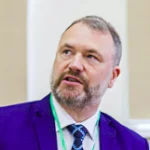58th International Conference on VIBROENGINEERING is an integral part of Vibroengineering Series Conferences and will be held in Ventspils, Latvia.
Conference is dedicated to researchers, scientists, engineers and practitioners throughout the world to present their latest research results, foster discussion, new ideas and develop partnerships. All JVE Conferences are integral part of the Series of Vibroengineering Conferences started in 1999. Vibroengineering Procedia is indexed in major scientific databases: Scopus, EI Compendex, Inspec, Gale Cengage, Google Scholar and EBSCO.
JVE conferences feature a broad range of high-level technical presentations, vibrant discussions and key experts and scientists from all over the world. The conference provides an opportunity to communicate your recent research advances, exchange ideas in innovative engineering technologies and enjoy endless networking advantages.
Keynote speakers
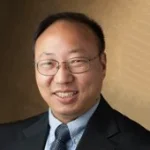
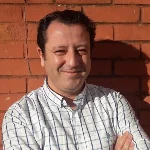
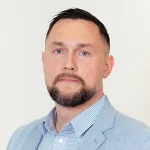

The necessary process design for the design, analysis, and fabrication of sensor structure by using micro stereolithography which is one of the 3D printing methods. The sensor which is planned to be fabricated in this study is will be used to measure temperature within the environment. Such temperature sensors are widely used in both consumer electronics and industrial, commercial, medical and military applications or equipment.
Although the telecommunication industry is the largest user of these devices, surface acoustic wave-based devices have many attractive features to be explored. Due to their small size, high sensitivity to external physical parameters and from the properties of the film deposited on the surface acoustic wave substrate, they can react very fast to the changes in the environmental conditions.
The rapid advancements in the sensor technologies have been affected positively by the technological progress that has been made my nanoelectronics structure fabrication techniques over the last few decades. The gains in microelectronics and nanoelectronics devices affect sensor technologies. Sensors are manufactured as smart sensors in line with micro technologies and offer innovative approaches in terms of cost, miniaturization, and precision. The use of micro-fabrication techniques has increased the performance and reliability, while on the other hand it has also helped in reducing the physical size, volume, weight, and cost. These factors make micro fabrication technology much more dominant than integrated circuit microchip technology. There are many benefits of reducing a mechanical system to a micro-scale. For example, in such a system, the forces related to volume (weight/inertia) lose their importance. Thus, very fast mechanical systems can be realized in the micro- scale world.
Organizing Comittee
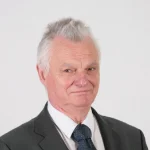
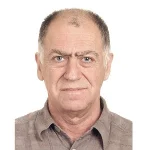



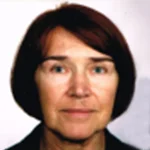
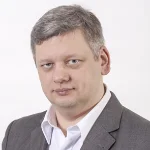
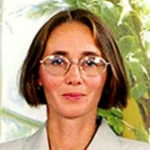
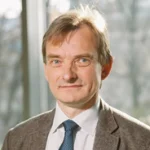


Conference Program
Sponsors and Partners
Conference in Ventspils, Latvia was supported by the European Regional Development Fund project No. 1.1.1.5/18/I/009 "Support to the Ventspils University of Applied Sciences in preparation of international cooperation projects for research and Innovation".


Kaunas University of Technology had its beginning on 16 February 1922, when the University of Lithuania and its technical faculties were established. The development of Lithuanian scientific ideas continued in the first Lithuanian independent technical school of higher education (in 1950–1990 titled Kaunas Polytechnic Institute (KPI)). It was famous for the ultrasound and vibrotechnics laboratories, and scientific research of textiles. In 1990 KTU regained its status of the university and took a path of rapid reforms of studies and research. The University continues to pursue sustainable partnership of science, business and industry, develops and implements new ideas, innovations and inventions.

Ventspils University of Applied Sciences, established in 1997, is a national higher education and science institution. Its basic activity is to carry out scientific research and to implement academic and professional study programmes. The university has three faculties, a library and a few scientific institutions. Students can acquire knowledge in faculties of Economics and Management, Translation Studies and Information Technologies. The university offer 14 Bachelor, Master and PhD study programmes. The scientific institutions of VeA are next: Ventspils International Radio Astronomy Centre (VIRAC) and Technology Transfer and Innovation Centre.

Engineering Research Institute "Ventspils International Radio Astronomy Centre" (ERI VIRAC) of Ventspils University of Applied Sciences is a science and education center specializing in the implementation of high-quality future research services in the field of space technology and signal processing. VIRAC cooperates with various Latvian, Baltic and foreign higher education institutions and organizations, it specially with European Space Agency, to implement various projects in astronomy, space and satellite technologies, electronics, high performance computing, remote sensing, signal discrete processing, etc. VIRAC is a key player in Latvian Space Industry and in fulfilment of Latvian Space Strategy as Latvia has become an Associate ESA Member State. Watch the video about VIRAC centre.
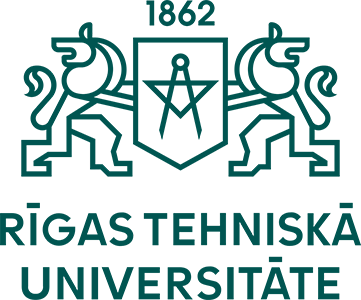
Riga Technical University is the oldest technical university in the Baltics established on October 14, 1862. It is Located in Riga, Latvia it was previously known as Riga Polytechnical Institute and Riga Polytechnicum. Riga Technical University is the largest technological university in the Baltic States with rich history and clear future vision aimed at promoting excellence in student academic results, research, and global issues in cooperation with the industry and foreign partners. RTU has become a modern internationally recognized university, which cooperates with famous research institutions, such as the European Organization for Nuclear Research CERN, European Space Agency, Royal Institute of Technology, Sweden, Fraunhofer Institute, Germany, and others.
Riga Technical University, Daugavpils Study and Science Centre was established more than 50 years ago. Till 1992, Daugavpils Study and Science Centre provided education in three fields: mechanics, electrical power engineering and civil engineering. Currently students can start studies in five fields: mechanical engineering, power engineering, civil engineering, economics and computer science.

Rezekne University of Applied Sciences (former name Rezekne Academy of Technology - RTA) is one of most fast-growing universities in Latvia. It was found in 1925 and for almost 100 years was Alma mater for many successful leaders. There are three faculties at RTA: Faculty of Economics and Management, Faculty of Engineering, and Faculty of Education, Languages, and Design offering more than 50 bachelor’s, master`s, and doctoral study programmes in Latvian and 14 programmes in English. All study programs at University has been awarded to the international accreditations. RTA implements several projects co-financed by the EU programmes involving academic and general staff and students. Having more than 185 cooperation partners from 31 countries, RTA promotes high mobility of academic staff and students. RTA regularly organizes local and international conferences.
